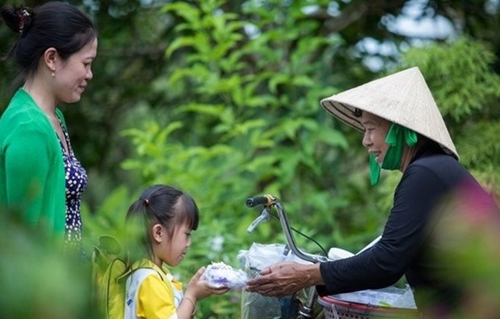The program targets those at risk of being left behind, including women and girls, adolescents and youth, older persons, ethnic minorities, migrant workers, people with disabilities, and survivors of gender-based violence.
    |
 |
|
The program targets those at risk of being left behind, including women and girls. (Photo: UNFPA) |
Under the program, UNFPA commits to supporting the implementation of the National Plan of Action for the Vietnam’s Sustainable Goals for the Decade of Action and the new Socio-Economic Development Plan (2021-2026) under the Socio-Economic Development Strategy (2021-2030) framework, both of which place focused attention to population dynamics and population issues.
The 10th Country Program was developed, following extensive consultations with the Vietnamese Government and other national and international stakeholders. It is in alignment with the United Nations Sustainable Development Cooperation Framework for Vietnam to fulfill the transformative promise of “Leaving no one behind” by directly contributing to two areas: inclusive social development, and governance and access to justice, thus reducing inequalities and vulnerabilities.
Naomi Kitahara, UNFPA Representative for Vietnam, highlighted the significance of the 10th cycle of UNFPA’s work in Vietnam.
“Building on the successes of the previous country programs, UNFPA’s interventions and initiatives in the next five years will aim at achieving the transformative results of the UNFPA’s corporate strategic plan, towards Vietnam with zero preventable maternal death, zero unmet need for family planning, and zero gender-based violence and other harmful practices against women and girls. Rights-based, gender-sensitive, and people-centred approaches will be used, and interventions in relation to humanitarian preparedness and response in light of climate change will be mainstreamed across all programmatic intervention areas,” she said.
The new UNFPA Country Program has been designed to achieve specific results.
For adolescents and youth, the enabling environment is created to support comprehensive youth development and participation, including in disaster management policies and programs and to advance the ICPD Program of Action.
Regarding population aging and social protection, a coherent and inclusive social protection system is enhanced, applying life-cycle and gender-transformative approach for ageing and meeting the individual needs of the most vulnerable groups.
For equitable access to sexual and reproductive health and rights, vulnerable groups including ethnic minorities, adolescents and youth, PWDs, and migrant workers have increased equitable access to comprehensive and gender-transformative SRHR information and services, including in the humanitarian-development nexus.
For data and evidence for policy and program making, evidence-based and rights-based policy and program making, budgeting and monitoring are strengthened based on data production, analysis and use.
In terms of gender-based violence and harmful practices, harmful attitudes that accept violence and perpetuate gender inequality especially those of young people are transformed to reduce GBV and other harmful practices including in the humanitarian-development nexus.
To achieve these results, UNFPA will partner with the Government, national institutions and CSOs fully in line with the principles of national ownership and mutual accountability.
UNFPA and the Government of Vietnam, through the Ministry of Planning and Investment as the Government coordinating agency, will be jointly accountable for the management of the program, and will plan, monitor and evaluate program implementation using the results-based management approach.
In terms of UNFPA’s humanitarian support to Vietnam, UNFPA will focus on the provision of integrated sexual and reproductive health care, the prevention and response to gender-based violence, and support for the elderly population groups. The rights and choices of women and girls, young people and older persons affected by humanitarian crises will be prioritized, leaving no one behind.
Source: VNA